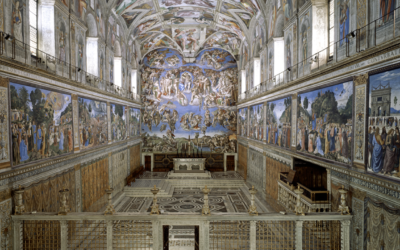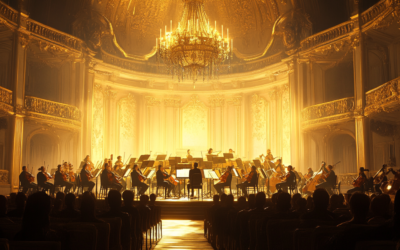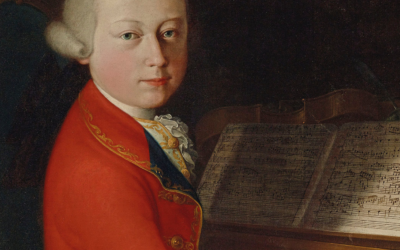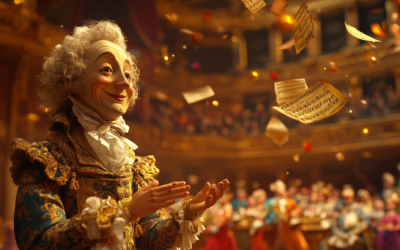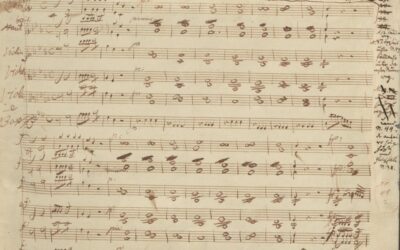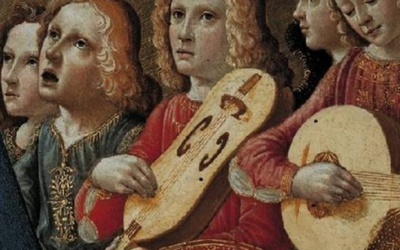Bohemia or Moravia
Reconfiguring Music History
When it comes to periodisation in music, we must ask: why do musicologists continue to rely on nationalistic myths rather than historical facts?
The so-called “Viennese Classicism” is nothing more than a concept rooted in German nationalist ideology, conveniently erasing the impact of Bohemian, Italian, and French influences to maintain an outdated narrative.
It’s time to reconfigure our understanding of music history.
Mozart in Italy: The Untold Story
Was Mozart truly a solitary genius, or was he merely the instrument of his father’s ambition? “Mozart in Italy” challenges the conventional narrative, revealing a complex dynamic between father and son that shaped the course of music history. Prepare to question everything you thought you knew.
"Music history should not bow to nationalist myths. It should reflect the diverse, cosmopolitan reality of 18th-century Europe."
Mozart: The Fall of the Gods
When it comes to periodisation in music, musicologists should not rely on personal judgements to label a composer as Romantic, pre-Romantic, or Classical. Instead, they should turn to objective data derived from historical sources. Why, then, does music seem immune to a clear temporal division akin to that applied to other art forms? And why do we have this peculiar concept known as Wiener Klassik, which unnaturally pushes Baroque music into the Enlightenment and Neoclassicism?
It was Manfred Bukofzer who coined the term “Late Baroque” for academic convenience, marking a boundary he himself acknowledged as limited. Yet, German historiography eagerly embraced this timeline, designating the death of Johann Sebastian Bach as the cut-off between Baroque and the Galant style. This shift set the stage for isolating the so-called “Viennese Classicism,” showcasing Haydn, Mozart, and Beethoven as Vienna’s “Holy Trinity.” But intriguingly, the term “Neoclassical” was never adopted as in other arts, likely because it would have implied a broader, more European movement, undermining the German-centric narrative.
The symphony, the concerto, and the string quartet are often said to transition seamlessly from Classicism to Romanticism. This is how we end up with the absurd phrase “Classical Romantic” in music historiography—an oxymoron that most scholars choose to ignore. Domenico Scarlatti’s late works, already infused with Enlightenment ideals, are dismissed as “Late Baroque,” while Mozart, who wrote in a myriad of styles, is conveniently confined to the “Viennese Classical” label.
Why is it that the contributions of Italian composers like Antonio Vivaldi and Giovanni Battista Sammartini—who developed symphonic forms decades before Haydn—are dismissed as “Late Baroque” relics? Their innovations are overshadowed to elevate German composers as the sole pioneers. Indeed, the racial and nationalistic divisions imposed by German music historians have obscured the true cosmopolitan nature of musical evolution. The string quartets performed in Venice without a harpsichord accompaniment and the string trios of Vivaldi, Torelli, and Geminiani exemplify a forward-thinking instrumental style far more innovative than anything coming out of Vienna in the early 18th century.
Even the Sonata form, supposedly the hallmark of Viennese Classicism, existed in various forms across Europe. Haydn, Mozart, and Beethoven did not live in a musical vacuum, detached from politics, literature, or philosophy. They were not gods descended from Olympus to compose in a stylistic bubble. Rather, they drew inspiration from the cultural and artistic trends of their time. Beethoven, for instance, is better understood as a Romantic, a contemporary of Caspar David Friedrich, rather than a “Classical” composer detached from his era.
It’s time we applied periodisation to music in the same way we do to literature or philosophy. The artificial construct of “Viennese Classicism” must be challenged. What about the so-called minor composers of the era—Étienne Nicolas Méhul, Johann Baptist Vanhal, Antonio Salieri, André Grétry, and many others? Their works defy the simplistic, nationalist boundaries imposed by 19th-century German scholars.
Christoph Willibald Gluck, a Bohemian by birth, was transformed into a “German reformer” by German music historians who conveniently erased his origins. As Bruno Nettl pointed out, the relationship between Bohemian and Austro-German music was systematically downplayed, as if Bohemian composers were mere imitators of their German counterparts. Yet, these composers held prominent positions in Viennese musical life, and their works were widely celebrated.
The Nazi era only exacerbated these nationalistic divisions, promoting Haydn, Mozart, and Beethoven as a “Holy Trinity” of pure German music. Hitler himself insisted on this narrative, while sidelining Jewish composers and non-German influences. Despite efforts to present Vienna as a melting pot of European musical traditions, the emphasis remained on the supposed supremacy of German composers. As Hans Engel tried to argue in his 1944 work, the similarities between Italian and German music were highlighted only when it was politically convenient.
The influence of Italian music on Mozart was consistently downplayed. Even in the darkest days of the Reich, the narrative focused on Mozart’s so-called German genius, ignoring the international character of Vienna’s musical life. The 1941 celebrations of Mozart in wartime Vienna were a grotesque example of using music for nationalist propaganda. This elevation of German composers, while denigrating or ignoring others, perpetuated a narrow, xenophobic view of music history.
Mozart, like any other composer, was a product of his time. His music reflects the Rococo, Neoclassicism, Sturm und Drang, and pre-Romanticism that defined his era. Far from being the divine creator of an immutable “Viennese Classicism,” his works are a synthesis of various styles.
We must abandon this Austro-centric vision of music history and adopt a broader perspective. Periodisation should be based on cultural and historical contexts, not nationalist ideologies. It’s time to reassess the so-called “Viennese Classicism” and recognise it for what it is: a belated, artificial construct marred by 19th-century German nationalism.
You May Also Like
The Legend of Mozart’s Miserere
The enduring popularity of the narrative surrounding Mozart’s Miserere highlights the allure of the prodigy myth, but as we peel back the layers, we uncover a more nuanced picture of his life and the musical landscape of the time. The reality often contrasts sharply with the romanticized tales that have shaped our understanding of his genius.
Rediscovering Musical Roots: The World Premiere of Gasparini and Mysliveček
This December, history will come alive as the Camerata Rousseau unveils forgotten treasures by Quirino Gasparini and Josef Mysliveček. These premieres not only celebrate their artistry but also reveal the untold influence of Gasparini on Mozart’s Mitridate re di Ponto. A pivotal event for anyone passionate about rediscovering music history.
The Curious Case of Mozart’s Phantom Sonata
In a striking case of artistic misattribution, the Musikwissenschaft has rediscovered Mozart through a portrait, attributing a dubious composition to him based solely on a score’s presence. One has to wonder: is this music really Mozart’s, or just a figment of our collective imagination?
The Illusion of Canonic Mastery
This post explores the simplistic nature of Mozart’s Kyrie K.89, revealing the truth behind his early canonic compositions and their implications on his perceived genius.
The Unveiling of Symphony K.16
The Symphony No. 1 in E-flat major, K.16, attributed to young Wolfgang Mozart, reveals the complex truth behind his early compositions. Far from the prodigious work of an eight-year-old, it is instead a product of substantial parental intervention and musical simplification.
The Cibavit eos and Mozart’s Deceptive Legacy
The Cibavit eos serves as a striking reminder that Mozart’s legacy may be built on shaky foundations, questioning the very essence of his so-called genius.


